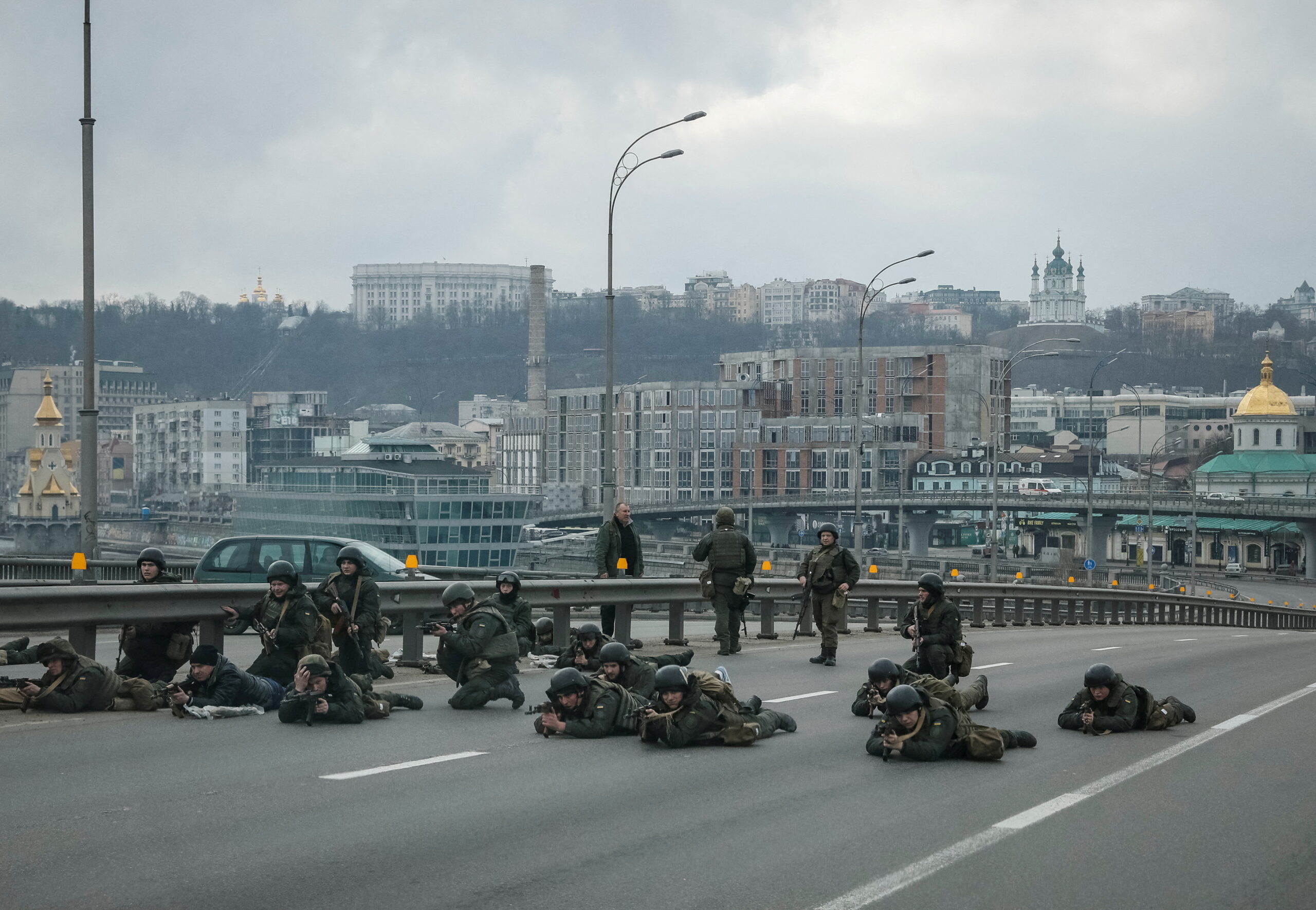Putin’s War is Bad News for the Climate
The Russia-Ukraine crisis could threaten global decarbonisation efforts.
by Paul Rogers
25 February 2022

Two days into his assault on Ukraine and it’s clear Vladimir Putin is set on taking the country back under Russia’s political control. Whether that means full occupation and regime change isn’t yet certain, but what we’re looking at is already the most serious security crisis in Europe since NATO’s bombing of Russia’s ally Serbia back in 1999.
This crisis may turn out to be far more costly, even if NATO doesn’t directly intervene against Russian forces. If NATO did get involved directly, Putin has warned of a response “never seen in history”. This implies a nuclear response – an implicit recognition of NATO’s huge advantage in conventional military forces.
A nuclear war would be just about the only act of human folly that could exceed the greatest security challenge of our time: climate breakdown. As such, NATO, the EU and other states will go to great lengths to avoid direct confrontation, opting to impose economic and political sanctions on Russia instead.
These will include sanctions against Russia’s oil and gas exports, which have already surged in price due to current events. Such sanctions may not damage Russia’s economy in the short term, as the country has sizeable foreign exchange reserves and China would almost certainly be a willing buyer if European markets are curbed. Even so, given the existing problems, we should expect major upheavals in the global economy.
To get a handle on this, it’s worth going back to the first oil price crisis in 1973-4. Oil prices were far lower then than now, but action in October 1973 by OPEC (the oil producers’ group) caused a price hike of over 400% in barely six months, ushering in a period of ‘stagflation’ – a damaging combination of inflation and economic stagnation. This, in turn, catalysed the transition to the current neoliberal economic system that, 40 years on, is so problematic.
As we move into a likely period of stagnation and austerity today, there will be strident calls for wholesale curbs on any new investment in green industries – the argument being that money must be saved to see us through the current crisis.
When the risk of climate breakdown was first widely recognised back in the early 1990s, intensive diplomacy led to the Kyoto Protocols and the early action on decarbonisation. These developments, however, were blown out of the water by the election of George W Bush in 2000, and his new administration’s antipathy to the very idea of action on climate change.
Given the power of the US, and fossil fuel corporations and producer countries’ strong opposition to decarbonisation, the best part of a decade was lost. Further setbacks came with Donald Trump’s climate change denial – a position shared by Russia, Australia and some other states, and always fomented by corporations.
In the past few years, however, developments in both climate science and renewable energy, along with the experience of initial climate breakdown, have all moved public opinion towards the need for urgent climate action. To put it another way, the ‘Overton window’ has shifted in the direction of decarbonisation. Pro-carbon lobbies, meanwhile, have made committed and well-funded rear-guard attempts to shift the window back the other way.
In the UK, for example, there is a well-resourced campaign to argue against funding for a rapid green transition. In Westminster the Net Zero Scrutiny Group is at the centre of these efforts, while many members of the European Research Group make common cause. The Global Warming Policy Forum, meanwhile, has just published a briefing titled ‘Revitalise North Sea Exploration and Start Fracking – Or Lose Putin’s Energy War for Good’.
This alone gives a sense of the kind of arguments that will be pursued relentlessly by the impact of the global economic upheavals prompted by Russia’s invasion of Ukraine. The crisis is itself immensely serious given Putin’s determination to prevail come what may. But the threat to decarbonisation efforts puts Russia’s war in an even wider frame – and just when progress towards climate justice is becoming possible.
Paul Rogers is Emeritus Professor of Peace Studies at the University of Bradford.


